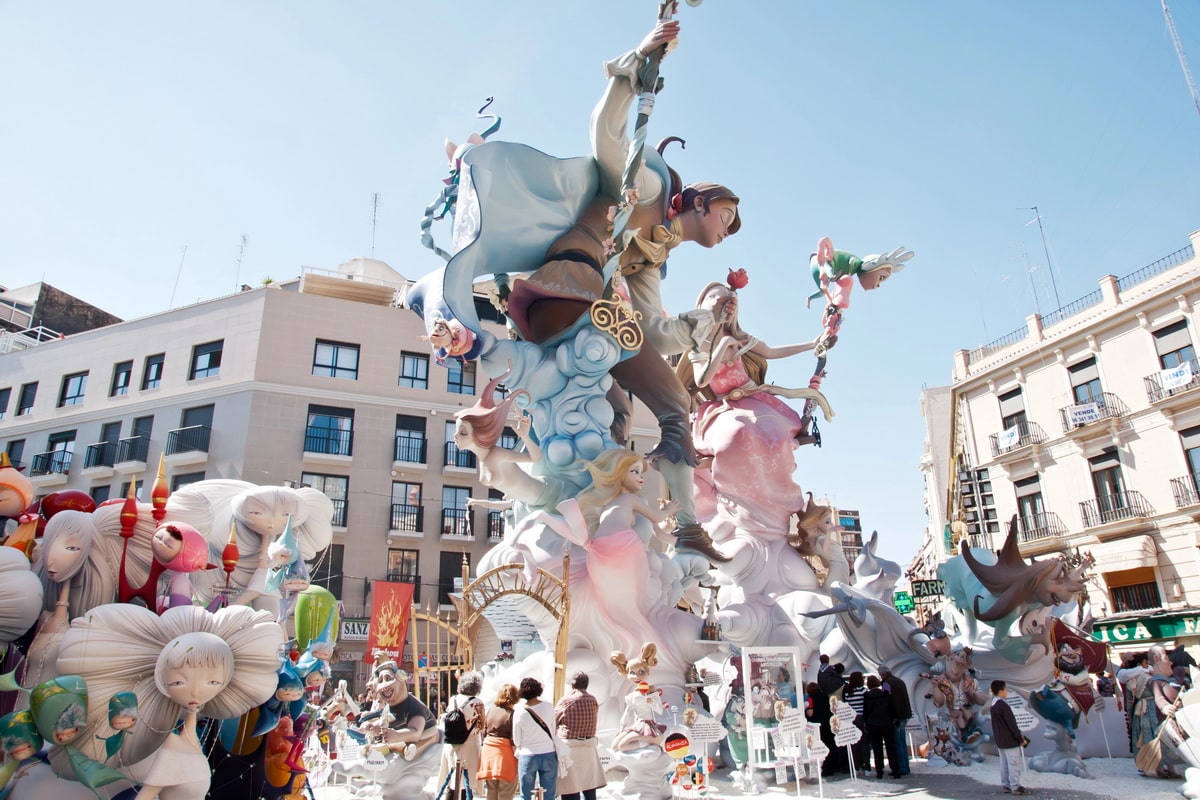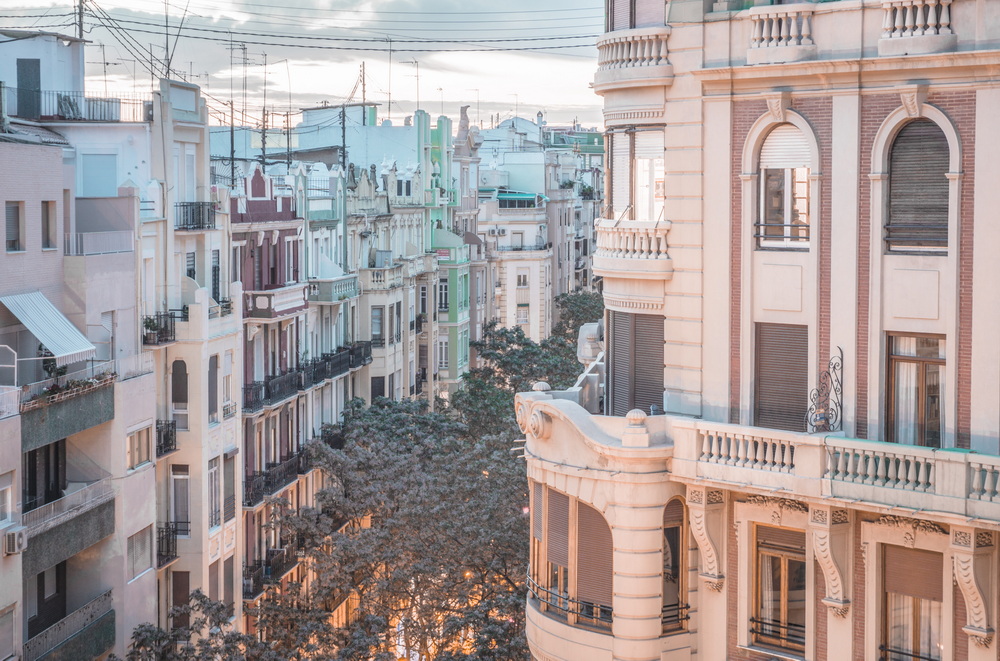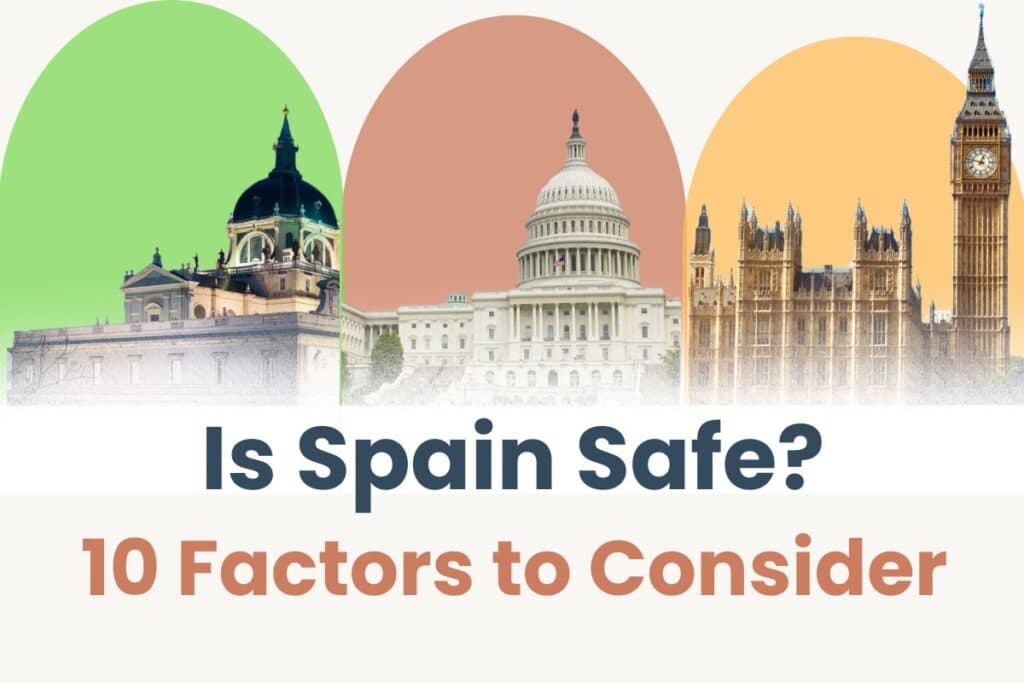Living in Valencia has so much going for it. In fact, the Valencian region is the second most popular area in Spain for British Expats. It’s also popular with American Expats. This is due to a variety of reasons, including the superb year-round weather, the beautiful scenery, and the stunning coastlines. Plus, a lower cost of living and the laidback lifestyle that comes with living in Valencia.
Valencia ticks so many boxes that it’s easy to see why so many are drawn to this fabulous region.
The Best Valencian Neighborhoods to Live In
We’ve dived into the best neighborhoods to live in Valencia in our in-depth article. You can check out the best areas for families, retirees, young professionals, students, and many more.
We look at areas like La Cañada, Puzol, Rocafort, L’Eliana, Mas Camarena, La Carrasco, Rusafa, Camins al Grau, Benicalap, and many more. Valencia has a suburb to fit the requirements and budget of just about everyone.
Our Valencia Real Estate Expert, Tanya Sharoglazova, will be happy to help you find the perfect place to live in Valencia.
Cost of Living in Valencia
Valencia is the capital and largest city of the Comunidad de Valenciana (Valencian Community). Therefore, you should expect a small price attached.
Unlike other large cities in the community, such as Alicante or Elche, living in Valencia is more expensive than the community average. Both in terms of rent/housing prices and daily expenses like eating out, groceries, and entertainment.
But that’s not to say these slightly higher prices aren’t worth it. After all, it’s easy to fall in love with this area after just a few days.
Check out our Spain Cost of Living Calculator to build your budget.
Transportation in Valencia
A fairly extensive metro network runs all over Valencia via ten different lines. These lines not only cover every inch of the city and a few areas further afield. But there is also a line for the main train stations as well as the airport.
This makes traveling around incredibly convenient no matter where you’re going. Tickets start at only €1.50 per journey, but the price depends on the distance you’re traveling. You can find the metro map and more information here.
You can also use your metro card on the local buses, which you can find more details on here.
Check out our guide to Transportation in Spain for more information.
Lifestyle in Valencia
Of course, the general lifestyle is one of the biggest draws for Expats to Valencia. Let’s look at the main components in more detail below.
Climate and Weather in Valencia
On average, it rains 46 days a year in Valencia. That leaves you with 319 days a year of lovely sunshine. The coldest month is January, with an average of 9 degrees Celsius, although it’s often higher. The hottest month is August, with an average temperature of 25 degrees Celsius. Although, again, many days hit the early 30s.
Food and Drink Culture in Valencia
Eating out in Valencia is a magical experience that captivates both locals and visitors alike, and it’s easy to understand why. Valencia showcases the region’s rich culinary heritage and its bounty of fresh, local ingredients. The city’s eateries range from traditional taverns serving timeless Valencian dishes to innovative restaurants pushing the boundaries of modern cuisine.
Valencia’s unique blend of flavors is deeply rooted in its history, combining Arab, Roman, and Christian culinary influences. Dining here is not just about the food; it’s about the experience. The warm, inviting atmosphere, the communal joy of sharing tapas, and the pleasure of al fresco dining under the Valencian sun all contribute to the city’s vibrant food scene.
Whether you’re savoring a classic paella by the beach, enjoying avant-garde cuisine in a chic urban bistro, or exploring the bustling Mercado Central for the freshest produce, Valencia offers a gastronomic journey that is as diverse as it is delicious.
It’s impossible to think of Spain without thinking about paella. Well, fortunately, for anyone living in Valencia, it’s the area’s specialty. They know a thing or two about how to cook the most delicious paella that will leave you wanting more. Ask any local, and they’ll tell you that if it is not from Valencia it is not really paella!
They’re also experts in Fideuà, which is seafood and noodles. A stew with eels and potatoes called All i Pebre, and Esgarraet; roasted peppers with fresh cod. We guarantee you’ll be in heaven every day if you have a soft spot for seafood.
Lastly, there’s Turrón. This nougat-based sweet is mostly found at Christmas, although you can still find a bar or two at your local supermarket throughout the year. There are different varieties and flavors, mostly nuts or chocolate, and it’s the perfect way to end a meal.
When you’re ready to stop in the sunshine for a glass of wine or beer, pull up a seat just about anywhere. You’ll even find beer on the menus at local fast-food chains! Even though prices are higher in Valencia, alcohol is still reasonable. You can easily pass an afternoon without spending more than €10 per person.
City of Art and Science
La Ciudad de las Artes y las Cièncias, designed by the world-famous Valencian architect Santiago Calatrava, is one of the most visited places in Valencia, a unique collection of modern buildings. It’s worth visiting for the architecture, but there’s also a lot more to see within the buildings themselves.
This project is a great example of the way Valencia sees its place in the world.
Best Beaches in Valencia
The sun is shining, so it’s time to head to the beach. Choose from any of the beaches listed below. They’re all as relaxing as each other.
- La Patacona
- La Malvarrosa
- El Puig
- El Saler
- L’Arbre del Gos
- Port Saplaya
- La Escollera
- Marenyet

Las Fallas Festival in Valencia
Las Fallas is a celebration full of color, art, and fireworks, marking the arrival of spring, usually held in March. It is a great way for Expats to feel part of the local cummunity.
The festival is famous for its “fallas” – large papier-mâché, wood, and plaster sculptures often depicting satirical or humorous scenes and characters. These elaborate creations are displayed throughout the city and result from months of collaborative work by local artists and community groups.
Each festival day starts with a wake-up call known as “La Despertà,” where bands march down the streets playing lively music. Another highlight is “La Mascletà,” a daily fireworks display that fills the city with thundering explosions, a true feast for the senses.
The culmination of Las Fallas is “La Cremà,” the burning of the fallas. On the final night, these sculptures are set ablaze in a spectacular display of fire and light, symbolizing rebirth and renewal. This act is both a goodbye to winter and a welcome to spring.
Alongside these events, the streets are filled with parades, traditional Spanish music, dance, and plenty of food.
Expat Community in Valencia
While the Expat community isn’t as big in Valencia as it is in some other parts of the region, it’s still big enough. Even during my weekend trips to the city, I found Expats at most bars. Especially with the recent rise of remote working in Spain, the Expat population here has increased.
El Cabanyal, Gran Vía, and Russafa are all great areas for finding Expats. You won’t have to walk more than a street or two before hearing someone speak English.
Networking Opportunities for Expats in Valencia
Understandably, moving to a new place where you don’t know anyone is daunting. So, it’s a good idea to try and network as soon as possible, not just for job opportunities but to make friends also. In my experience, I’d recommend using a site called Meetup.com to find more Expats around your area. You can use it to make friends and start building your community.
Working in Valencia as an Expat
Like in any part of the country, once you have your NIE and social security, you can work anywhere you want. You can go to your local Social Security office to get help with finding a job. Or you can go in person to businesses to ask for applications.
Top Tip: The primary language in Valencia is Valencian, with Spanish being the second language. You will be able to get by with Spanish, but many people will speak Valencian as their first language. It’s good to try and learn some if you can but don’t worry, as most people are happy to switch to Spanish if necessary.
Since Valencia is such a large city, you will also find people who speak English. Sometimes, this comes in handy when you need help and can’t quite remember the words you need.
Check out our Expat Jobs in Spain guide.
Healthcare and Education in Valencia
Spain has some of the best healthcare in Europe, so you can be assured that you’re in good hands. You’ll need a SIP card to use the services, but once you do, you can use any public hospital or doctor for free.
Registering at your local health center only takes a few minutes, and now with the GVASalut App, making appointments is easier than ever.
If you have private Spanish health insurance, there are excellent private healthcare options too.
School is compulsory for kids aged 6-16, so you’ll need to enroll your children in your local school as soon as possible.
If you would prefer that your kids go to an English-medium school in Valencia, then check out the following:
- Caxton College
- British College
- La Cañada
- Los Olivos
- The Cambridge House,
- The British School of Valencia
Your children will still receive the same necessary and excellent education they would in the USA or the UK.
Is Living in Valencia Safe?
Valencia’s official low crime rates vs. other European cities align with my experience and feedback from other Expats. Violent crime is uncommon, but petty theft and burglary are rising compared to five or ten years ago.
You’ll find that you can walk around Valencia without worrying about being robbed or having your car stolen. Although, that’s not to say you shouldn’t still keep your wits about you.
FAQ – Living In Valencia
What is the cost of living like in Valencia?
It’s slightly higher than the average of the rest of the region but still lower than the rest of Spain. It is cheaper than Madrid and Barcelona.
What is the weather like in Valencia?
Valencia has nearly 320 days of sunshine a year; this is more than enough time to get your sunbathing in. Even in mid-winter daily high temperatures seldom drop below 10 – 15 degrees centigrade. The summers are very warm.
What neighborhoods are popular for Expats in Valencia?
El Cabanyal, Gran Vía, and Russafa are all areas popular with Expats.
How easy is it to find work in Valencia as an Expat?
If you speak Valencian, Spanish, or both, then finding a job will be much easier since English isn’t as popular here. However, you can still get jobs doing things such as bar work or as an English teacher in an academy.
What is the healthcare system like in Valencia?
The healthcare system has a high standard. Plus, once you have your SIP card, you can use any public hospital or doctor for free.
What is the public transportation system like in Valencia?
The transport system includes the metro and bus and covers the entire area. It’s a vast network with a low cost making every journey easy.








